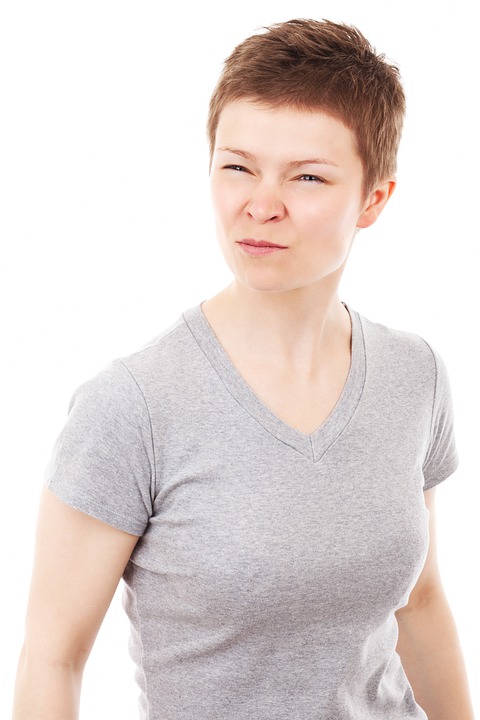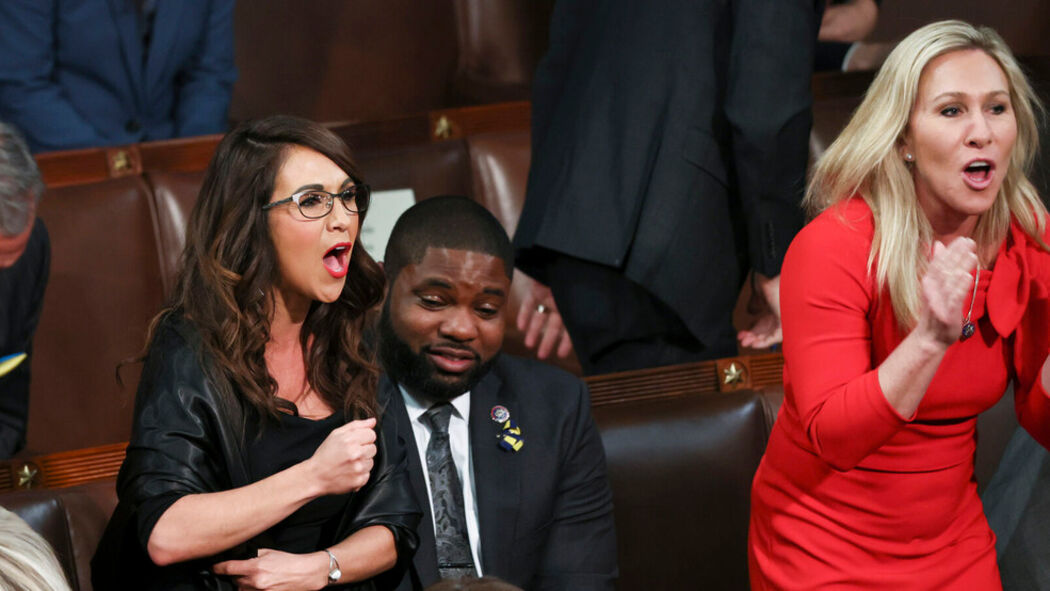
Karen (Slang) – Karen is a pejorative term for a white woman perceived as entitled or
demanding beyond the scope of what is normal. The term is often portrayed in memes
depicting white women who use their white privilege to demand their own way.
– From Wikipedia
“Where hides evil in my kingdom, then?”
“Always, where you never expect it. Always.”
– From the movie Excalibur
Insults and epithets can be quite complex concepts. An older gay man said he didn’t like the word “Queer”, because it used to be a vile insult. He said if you tried calling Harvey Milk queer when he was still alive, you would end up with a broken nose. Yet now it’s been co-opted by gay culture to the point where anyone can use it to refer to the gay community and it’s all good.
The controversial N-word is in another camp. The concept of co-opting an epithet is to take away it’s power, but that word still holds a lot of power. It can be anything from a a friendly show of camaraderie all the way to a vile insult that will incite quick violence depending on who uses it and how they use it. These words demonstrate how complex and convoluted these kind of words can be, especially in how they evolve over time.
Some may be taken aback by the reference of the popular “Karen” moniker as an epithet. Used to refer to bent-out-of-shape white women who are demanding to see the manager, or white women calling the police because they are offended by a group of black people in a park, or becoming outwardly outraged when they overheard someone speaking Spanish, the word has gone viral as a way of describing certain kinds of women.
Indeed, very few people even question the whole concept of Karens, despite it’s widespread popularity. I have only seen one article seriously tackle the Karen concept, from the Atlantic.
So what could be wrong with calling an outraged white women Karens? When they’re berating and blasting people because of their station or their race, or just recklessly throwing around their white privilege?
The justification for calling a woman a Karen is, theoretically, to call out white privilege. But if that’s the case then why isn’t there a male equivalent? Some people have attempted to coin a name as a phrase for “male Karens”. I have heard the names Chads, Thads, Kens, Kyles, and Kevins, but none of them have caught on. Not one of these male versions has even come close to the viral popularity of Karen as an epithet.
What makes the whole Karen concept problematic is the roots of its popularity, which are uncomfortably steeped in cultural sexism to the point where everyone is either ignorant of its sexist implications, or they’re ignoring it, or simply brushing it aside because they’re having too much fun using the expression.
Most language gives their nouns and articles gender, languages such as Spanish and German do so, and therefore they do not have an all-encompassing gender neutral article such as the English word “the”. But that does not mean our English speaking culture does not assign or imply gender in our language. Anger, aggression, and having an outspoken attitude are masculine traits. Aggression is the realm of men, and oftentimes men are lauded for aggressive behavior, even over the top behavior. Women who become aggressive or angry are typically evaluated to be “hysterical”, a word that has it’s origins from deep-seated misogyny. Anger and aggression are decidedly unfeminine in this culture.
The Karen concept also revolves uncomfortably around the realm of women “keeping their place.”

Some of the most famous “Karens” of all, the neo-conservative
members of Congress Lauren Boebert and Marjorie Taylor Greene,
often mocked for their prejudice, but not usually considered
with the same kind of seriousness as their male counterparts
When overtly aggressive men are called out for their white privilege, when they spout racism or act aggressively, people do mock them, sometimes with barren insults and can even express pity for their ignorance. Even so, the way in which aggressive and prejudiced men are called out still shows some measure of respect, because they are framed as threats, as people who need to be taken seriously.
When people talk about Karens they oftentimes do so with grins, with smiles, with bright eyes betraying the vicarious thrill people get when calling out aggressive women. “Karens” are often the butt of jokes and humorous memes and videos. And that betrays the cultural prejudice that comes with the Karen epithet. Karens are women who are stepping outside of their assigned gender roles. Far from being pitied, and never taken with the same kind of deadly seriousness as their male counterparts, they are held up in delightful mockery. The repeated videos of Barbecue Becky, the Central Park dog walker, and shots of Marjorie Taylor Greene and/or Lauren Boebert constitute a female minstrel show. Why? Because they’re trying to assert themselves in a role that is generally considered, even by detractors, as a masculine role, a role reserved for men. Men are threats. Women who try to carry out the same outward aggression and prejudice are laughable.
But can you be sexist when calling out racists and classists?
The conundrum of calling out this kind of prejudice in regards to the Karen term is that one can be seen as trying to defend the women who engage in that kind of behavior, and can also be taken as trying to excuse the actions that get them called Karens in the first place, and I’m sure many people will accuse me of doing so.
It gets complicated because the epithet is used to attack people who are consciously exercising overt prejudice. It’s also an idea that seems to cave in on itself for most people. How can you be biased if you’re attacking someone who is being biased?
That’s why it’s so pernicious.
The Karen epithet can be characterized as a safe form of misogyny, because it’s belittling women who are acting in gross and prejudicial ways. The idea of calling the Karen moniker as an act of misogyny has barely been touched on.
Pervasive patriarchal and misogynistic concepts still have a bedrock place in Western culture. Even in this age of inclusivity, with the opening up of complex and varied gender identities, and the growing acceptance of LGBTQ people, there are still very strong sexist concepts that permeate our everyday lives, even as many people fight and oppose overt sexism in our society.
Tales of sexist and misogynistic behavior against women who have been harassed, stalked, and bullied mercilessly, especially online, are all too common. I don’t pretend to know the deeper psychological concepts of “Karen” behavior, but to say or imply that those yelling, barking, and outraged women have not themselves been under the same kind of sexist pressure that so many other women have endured would be folly. It’s not something many people want to consider, because of their over the top anti-social behavior. The desire to want control, even with overreaching and prejudicial control, could very likely be manifested from the kind of personal and societal pressures that include the very harassment so many other women have to face in this culture.
The many women who have had the courage to persevere and fight and stand for themselves in the face of widespread cultural sexism is a story we’ve heard over and over again. But the idea that other women did not respond to such pressures with such heart and conviction, that they’ve been broken down to become someone who is harsh, who is controlling, who is prejudiced, is not something that is often talked about. People who have experienced such trauma and abuse do not always come back from such pressures and experiences with admirable strength and resolve. Sometimes it comes back in the kind of twisted behavior that many so-called Karens are famous for.

Male racists are often mocked and made fun of, but they are
also considered to be very real threats to our way of life.
Their female counterparts are usually reserved just for simple
light-hearted mockery, and are rarely framed as true threats.
But it still comes back to this idea. Does their outward prejudice and foul behavior disqualify any potential misogyny when calling out women as Karens? The Atlantic brought up the concept. “Is it sexist?” they asked. The Atlantic listed the many times white women were complicit in racist violence, such as Carolyn Bryant Donham, the woman who identified Emmit Till to the men who would torture him to death. They also bring up the accuser of the Central Park Five, a group of black men who were falsely accused of rape by a white woman. It has even been suggested that using the Karen moniker is an effective and admirable way of fighting prejudice.
Yet bringing up this history of white women being complicit in the false imprisonment and murder of black men doesn’t coincide with the cultural vein in which the Karen epithet is used. People rarely use the word to proclaim the deadly seriousness of overt racism and aggressive white privilege. They call out Karens with bright eyed grins and smirks, and use Karens in jokes and laughable memes and videos. The culture of the Karen epithet is rooted in mockery, not a calling out of a deadly cultural concept, which also brings up another issue: In an atmosphere where racism still prevails, is the light-hearted mocking of racists not minimizing the deadly seriousness and potential harm of these kinds of cultural prejudices? Or is the dismissal of aggressive and prejudiced women really just putting them in their place, telling them they don’t really count when it comes to be considered a societal threat?
Call them out on their racism. Call them out on their privilege. Call them out on their prejudice. But calling them Karens means invoking a phrase that has it’s root in cultural misogyny, whether the people using that phrase know it or not.
The kind of prejudice that roots itself in our cultural discourse is the most pernicious, because it creeps and seeps into corners of our thoughts and minds in such a way that we do not even realize we’re invoking such concepts. It’s easy to call out and attack the blatant prejudice of people, whether it’s a white supremacist or a corrupt President or even a “Karen” calling the police. But the kind of prejudice that hides, the kind of discrimination that becomes an embedded part of out cultural fabric because it managed to wedge itself into a “safe place” in our discourse, that is the most dangerous kind of prejudice of all.
Especially if it’s a concept born of old, antiquated, and a dangerous prejudice that finds new life because it found itself a comfort zone that we can all readily and sometimes happily accept.